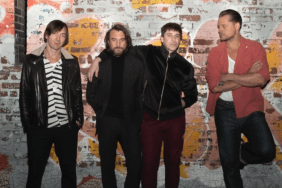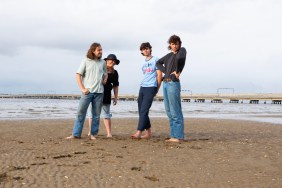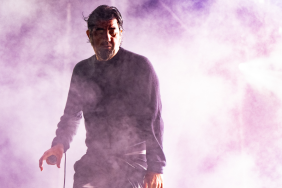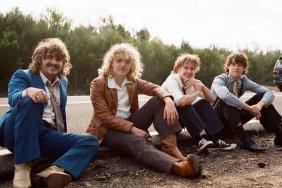Ladies and gents, let’s talk about post-punk. Not the post-punk-influence that’s been surging through the alternative music scene for the last few years – where, as a result, Joy Division have teetered on the brink of genericism, due to every-which-what band singing their praises (and songs about ‘dancing’ to ‘them’ played on the radio). Let’s talk about the real stuff – the dirty, poor, home-made, inner-city beginnings in the late seventies. The complete bypass of Australian mainstream music media. The cold artistic obscurity which, in turn, created a thriving underground local scene, and also in turn, has evolved into both legend and inspiration for so many.
Scattered Order began from the most humble of circumstances. An ideal example of the DIY ethic on which the most impressive elements of punk were based on, their history includes self-start record labels and recording studios, the fierce force of aural experimentation and line-up changes. Scattered Order’s story starts in 1979, when Michael Tee and Mick Jones started ‘wrangling guitars and any signal-altering device they could get their hands on’. Around this time, they turned a small, rented terrace house into a recording studio and record label: M-Squared, complete with the motto, ‘World Domination’.
“We believed in the DIY ethic of punk. The world domination thing comes from the letters we used to receive from people overseas who thought we were a ‘big’ company and would write to us asking for a job,” explains Michael.
“We thought all record companies were hoaxes. We had no idea what they did but we knew we could do it better. We had the sounds and the bands. All we needed was enough front to blag our way through it,” continues Mick. Through its time, M Squared offered inner-city, underground bands an opportunity to lay down their tracks cheaply. During the early eighties, the label released various samplers and EPs from bands such as Scattered Order, Systematics and The Makers of the Dead Travel Fast.
“Because of necessity, everything was done in-house. There was no industry as such catering for independent bands, so we had to do it for ourselves. Recording, designing, distributing and live promotion.”
Scattered Order started out aiming to exploit the limitless possibilities of analogue recording. “We used to describe ourselves as the builder’s labourers of the avant garde”, says Michael, a response to the narrow-mindedness of the Australian pub rock scene plaguing the industry in the eighties. “We used to assemble music rather than write songs. We just made music that we wanted to hear.”
Ploughing through relative obscurity in the industry, positive critical response and numerous line-up changes, the band continued to make music and perform throughout the nineties, and sporadically in the new millennium. The period between 1984-1988 saw the release of the album Career of the Silly Thing and support slots for bands such as New Order and The Residents.
The original version of the band are reuniting for a show in Sydney in late July. “Scattered Order is all about bending and treating a whole range of music sources and influences. Using the personnel and technology that is to hand we try to create music that sears your brain. Not stopping for anybody is this 16 wheel juggernaut of loops, samples, cassettes and guitar which will plough through both old tunes and new,” says Mitch.
“Scattered Order throughout the years have never tried to go back and play earlier material live. We could never remember how to play the old songs, so the idea of playing old tunes at this coming show is a bit odd. Knowing we could never recreate the old material, we decided to reverse engineer it, which just means we have dismantled, looped, cut and treated it before trying to put it together.”
Like so many bands of the same time, and similar genre, the music and history of Scattered Order have reawakened, the result a brand new audience who have taken interest in the DIY music offshoots of punk, and the resurgence of interest in Australian and international post-punk.
“They weren’t hard times. They were fun times. This hard time narrative suggests that the purpose of being in a band or making music is to be rich and successful or wildly acclaimed. We didn’t make music so we could be famous or rich, so in that sense we were a success,” Michael says of the band’s history. Live, “Noisy funny people were watching us whilst drinking beer. There were lots of black jeans and Doc Martins. I used to pretend I was playing in the first version of Public Image Ltd.”












